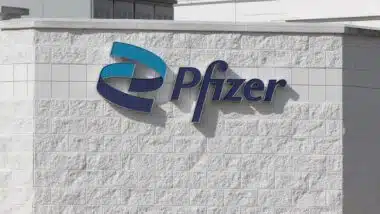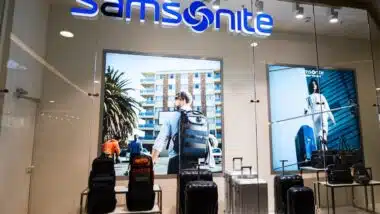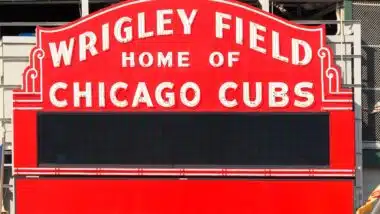
Class action lawsuit accuses drug companies of entering an agreement to delay the release of generic Aggrenox in order to maintain profits.
So-called “pay for delay” agreements between brand name pharmaceutical companies and their generic counterpart competitors have been in the news lately, primarily thanks to the Supreme Court’s summer decision regarding access to certain medications coming off patent. As a result, multiple class action lawsuits have been filed against drug makers for allegedly delaying the release of cheaper, generic versions of their medications in order to maintain high profits. One of the most recent pay-for-delay class action lawsuits pits an union’s health fund against Teva Pharmaceuticals and Boehringer Ingelheim regarding their anti-stroke drug Aggrenox.
Aggrenox combines aspirin with a chemical used to limit the effects of blood clots or other conditions from causing a stroke in patients who have already had a stroke or a transient ischemic attack. According to a class action lawsuit filed by the NECA-IBEW Welfare Trust Fund, a generic form of the medication could have been approved for Barr in January 2007. Instead, the companies allegedly engaged in a “reverse payment” scheme that kept generic Aggrenox off of the market.
According to the Aggrenox antitrust class action lawsuit, plaintiffs like the union’s health fund payed artificially high prices during the period of the “pay for delay” agreement, which they believe is a violation of the Sherman Act and Clayton Act. They are seeking treble damages for “continuing violations of state antitrust, unfair and deceptive trade practices acts and unjust enrichment laws.”
Documents submitted by the union indicate that Boehringer Ingelheim was making hundreds of millions of dollars per year on Aggrenox at the time that it engaged in settlement talks with Barr, now Teva Pharmaceuticals. It is also believed that a generic version of Aggrenox would have been no more than 25 percent of the cost of the drug when it was on patent. More importantly, according to the class action, the drug is unique in the marketplace because it is a “combined aspirin and extended-release dipyridamole treatment for subsequent strokes[.]”
Under the terms of the alleged pay-for-delay agreement, Barr would not launch its generic Aggrenox equivalent until up to Jul. 1, 2015, and in exchange would gain six months of exclusivity as the first to file for a generic patent, at which time Boehringer Ingelheim would not market its own alternative. Additional payments were to total $120 million, according to the class action lawsuit.
This is the second antitrust case to be filed against Boehringer and Teva this year. A similar generic Aggrenox class action lawsuit was filed in early January by drug distributor American Sales Company, LLC. Other recent pay-for-delay class action lawsuits have included the makers of Adderall and Nexium.
Complaints about drug companies colluding to keep less expensive generic medications off the market are coming at a time when the Supreme Court has seemed to open the door for pay-for-delay lawsuits against drug makers thanks to a decision in favor of the Federal Trade Commission investigating violations of the Sherman Antitrust Act and related statutes.
In fact, contrary to other news reports regarding the litigation, an investigation into this specific agreement between Teva and Boehringer Ingelheim, begun by the FTC in 2009, is in fact ongoing. The federal agency is still seeking documentation from Boehringer regarding questions about whether “the co-promotion agreement was a fair business deal,” according to a brief filed by the FTC on Jun. 28, 2013, where it noted that Boehringer refused to produce financial analysis the company says justifies the agreement.
A federal judge in the U.S. District Court for the District of Columbia has not ruled on the motion to enforce the subpoena the FTC is requesting.
The class action lawyers for the new case filed by the union health fund are Marc S. Henzel; David W. Mitchell and Brian O. O’Mara of Robbins Geller Rudman & Dowd LLP; and Patrick O’Hara of Cavanah & O’Hara
The Generic Aggrenox Antitrust Class Action Lawsuit is NECA-IBEW Welfare Trust Fund v. Teva Pharmaceuticals, USA Inc., et al., Case No. 14-cv-00329, U.S. District Court, Eastern District of Pennsylvania.
ATTORNEY ADVERTISING
Top Class Actions is a Proud Member of the American Bar Association
LEGAL INFORMATION IS NOT LEGAL ADVICE
Top Class Actions Legal Statement
©2008 – 2025 Top Class Actions® LLC
Various Trademarks held by their respective owners
This website is not intended for viewing or usage by European Union citizens.















2 thoughts onClass Action Says Generic Aggrenox Was Illegally Kept Off the Market
Had a stroke and a TIA in 2003 and 2004.
I had my stroke in 2013. Been on Aggrenox ever since.